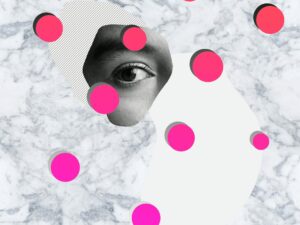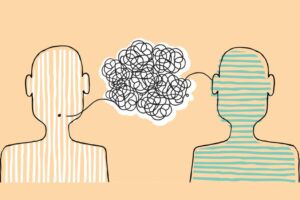Do you ever have thoughts that make you feel really uncomfortable? Thoughts that make you worry that maybe you’re a racist? If so, you might be experiencing something called racist OCD. Racist OCD is a type of obsessive-compulsive disorder that involves intrusive thoughts about race. These thoughts can be subtle or overt, but they always cause a great deal of anxiety and discomfort. If you’re struggling with racist OCD, there are things that you can do to manage your symptoms and get relief. In this blog post, we will discuss some of the most common symptoms of racist OCD and offer some tips on how to cope with them.
Defining Racist OCD

Racist OCD, also known by its clinical name of Racial Obsessive Compulsive Disorder, is a type of OCD that is characterized by intrusive and unwanted thoughts about race. These thoughts can be about any race, but they are often specifically about black people or other minority groups. The thoughts can be subtle, like questioning whether you really believe in equality for all races, or they can be more overt, like fearing that you will say or do something racist. Regardless of their content, these thoughts always cause a great deal of anxiety and distress.
Racist OCD is not the same as simply being racist. People with racist OCD are not actually prejudiced against any race; they are only afraid that they might be. This fear can be so strong that it leads to avoidance behaviors, like refusing to go to certain places or avoiding contact with people of other races. In some cases, people with racist OCD will only associate with people of their own race.
Racist OCD is also not the same as having a normal fear of saying or doing something racist. Everyone has this fear to some extent; it’s only natural to worry about offending someone with your words or actions. However, people with racist OCD take this fear to an extreme. They might obsessively check their words and actions for any hint of racism, or they might avoid all contact with people of other races out of fear that they will say or do something offensive.
All of these can severely restrict a person’s life and make it difficult to function on a day-to-day basis. If you are struggling with racist OCD, there is help available. It is a manageable and treatable condition, and with the right help, you can live a full and fulfilling life.
Signs And Symptoms
Within OCD, there are two major components to the disorder: obsessions and compulsions. Obsessions are unwanted and intrusive thoughts, images, or urges that cause a great deal of anxiety and distress. Compulsions are the behaviors that people with OCD engage in to try to reduce their anxiety.
In the case of racist OCD, the obsessions are typically about race-related topics. The person might have fears and thoughts about:
- Having offensive thoughts about people of other races
- Being attracted to someone of a different race
- Saying or doing something racist
- Being prejudiced against a certain race
- Not being “woke” enough
- Being accused of racism
- People of other races not liking them
These thoughts are unwanted and intrusive, and they cause a great deal of anxiety. In order to try to reduce the influence of these thoughts, they may engage in compulsions or activities such as:
- Checking and rechecking their words and actions for any hint of racism
- Avoiding people or places that are associated with other races
- Only associating with people of their own race
- Being afraid to speak up about racist jokes or comments for fear of being called a race traitor
- Apologizing excessively when they do something that could be perceived as racist,
- Excessively researching race-related topics
- Asking others for reassurance about their thoughts and actions
These are a few examples of the compulsions and avoidance behaviors that people with Racist OCD engage in. These may seem harmless and even well-intended, but they can actually be harmful to both the individual and those around them.
Causes

Racist OCD is a rather complex and unique form of OCD, and as such, there is not a single known cause. However, there are a few possible contributing factors that have been identified.
- One possibility is that racist OCD is related to other types of social anxiety or phobias. People with social anxiety often worry about saying or doing something embarrassing or offensive in social situations.
- It is also possible that racist OCD is related to other forms of obsessional thinking, such as Pure-O OCD. In Pure-O OCD, people have intrusive thoughts about taboo topics like sex, violence, and religion. These thoughts are so anxiety-provoking that the person tries to avoid them at all costs. It’s possible that race-related thoughts can be just as anxiety-provoking and can lead to similar avoidance behaviors.
- Media and society can also play a role in the development of racist OCD. The way that race is portrayed in the media can lead to distorted and unrealistic beliefs about other races. These beliefs can then fuel the obsessions and compulsions associated with racist OCD.
- Moreover, life instances such as being the victim or witness of a hate crime can trigger racist OCD. Other stressful life events, such as experiencing racism or witnessing racial tensions, can also contribute to the development of this disorder.
- Lastly, family history may also play a role. If someone has a family member with OCD or another anxiety disorder, they may be more likely to develop racist OCD.
These are just some of the possible causes of racist OCD. It is likely that a combination of these factors leads to the development of the disorder.
Consequences
By the description and name, racist OCD may not seem like a serious disorder. However, it can actually have a number of negative consequences.
- Racist OCD can lead to social isolation and withdrawal. As mentioned earlier, one of the compulsions associated with this disorder is avoidance of people or places that are associated with other races. This avoidance can lead to social isolation and make it difficult to form and maintain relationships.
- It can also lead to academic difficulties. Another common compulsion is avoiding anything that could be perceived as racist. This may include avoiding discussions or assignments in class that deal with race-related topics. As a result, the individual may have difficulty understanding and learning the material.
- Racist OCD can also lead to employment problems. The compulsions and avoidance behaviors associated with this disorder can make it difficult to perform well at work. This may lead to difficulty getting and keeping a job.
- Racist OCD can lead to physical health problems. The anxiety and stress associated with this disorder can take a toll on the body and lead to physical symptoms such as headaches, stomachaches, and insomnia.
- The consequences may also impact a person’s cognitive functioning. Studies have shown that people with OCD often have difficulty with executive functioning, which includes tasks such as planning, organizing, and multitasking. This can make it difficult to function in day-to-day life.
- Moreover, the emotional consequences of feeling like you’re a bad person can be devastating. Racist OCD can lead to feelings of guilt, shame, and worthlessness. These feelings can be so intense that they lead to suicidal thoughts or attempts.
All these factors and effects can
Tips To Deal
The good news is that racist OCD is treatable. With proper diagnosis and treatment, most people with this disorder can learn to manage their symptoms and live a full and fulfilling life.

- Seek out therapy. OCD can be very isolating and debilitating, but therapy can help you manage your symptoms and regain control of your life. A therapist who specializes in OCD will be able to help you address the thoughts and compulsions that are causing you distress.
- Get educated about OCD and racism. Racism is a complex issue, and it can be difficult to know what is and isn’t racist behavior. It’s important to get educated about both OCD and racism so that you can better understand your own thoughts and feelings, as well as the thoughts and feelings of others.
- Join a support group. There are often groups available for people with OCD, and these can be a great source of support. Hearing from others who understand what you are going through can be very helpful.
- Expand your social network. This means that you should try to meet new people and make new friends. This can help you combat the fears of being racist by interacting with people of other cultures.
- Utilize online resources. In the technological age where information is available at one’s fingertips, it can be helpful to seek out online resources about OCD and racism. These can provide support and information when needed. Some examples can include books, blogs, podcasts, chat forums, and much more.
- Lastly, be patient with yourself. Recovery from racist OCD takes time, effort, and patience. There will be good days and bad days, but with hard work, you can manage your condition and live a full life free of obsessions and compulsions.
Conclusion
Conclusively, we now know that racist OCD is a real and serious condition that can have a significant impact on a person’s life. If you think you may be suffering from this disorder, it’s important to seek help from a qualified professional. With proper treatment, most people with racist OCD can learn to manage their symptoms and live a fulfilling life. Racism can be a sensitive and difficult topic to discuss, but it’s important to remember that you are not alone. There is help available if you need it.
If you or someone you know is struggling with OCD, please reach out to Therapy Mantra for help. We have a team of highly qualified mental health professionals who can provide you with the treatment and support you need. Contact us today to book an online therapy session or download our free OCD treatment app on Android or iOS for more information.


